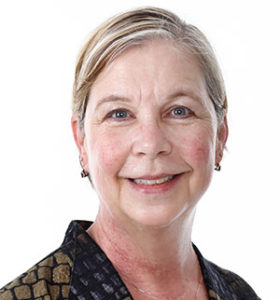Session 1 – Building Smart City Ecosystems
12 July 2021, 10.30/12.30am EDT
Moderator: Joel Myers
Speakers:
- Aslı Ceren Mavikurt (Smart City Lead, Istanbul, Istanbul, Turkey)
- Mohamed Essaaidi (Mohammed V University, Rabat, Morocco)
- Waleed Khalaf (CEO, Bahrain Smart Cities Summit, Bahrain)
- Jorge Gomez Sanz (Assoc. Prof., Dept. of Software Engineering & AI of the Faculty of Computer Science at the University of Madrid)
Session 2 – Mobility: State of the Art in Smart Cities
13 July 2021, 10.30/12.30am EDT
Moderator: Mohamed Essaaidi
Speakers:
- Victor Larios (Director of the Smart Cities Innovation Center, University of Guadalajara, Mexico)
- Grigorios Fountas (Ass. Prof. in Transport Engineering and Highway Design in the School of Engineering and the Built Environment at the Edinburgh Napier University)
- João Barros (CEO & Founder of Venium Works, Mountain View CA, USA)
- Rosaldo Rossetti (Assoc. Prof. and member of the executive committee of the Dept. of Informatics Engineering at the University of Porto, Portugal)
Session 3 – AI, helping to build social well-being
14 July 2021, 10.30/12.30am EDT
Moderator: Victor Larios
Speakers:
- Antonio Liotta (Full Professor, Faculty of Computer Science, Free University of Bolzano, Italy)
- Gilles Fayad (Director of Initiatives, AI Commons)
- Sampathkumar Veeraraghavan (IEEE HAC Chair)
- Tomi Ilijaš (Founder and CEO of Arctur, Slovenia)
Session 4 – Strategies and Policies for Smart Living
15 July 2021, 10.30/12.30am EDT
Moderator: Mohamed Essaaidi
Speakers:
- Alan Mickelson (Chairman of IEEE Smart Village)
- Mohamed Bakhouya, Professor of Computer Science at the International University of Rabat, Morocco
- Najat Zarrouk (Director of the African Local Government Academy (ALGA) of UCLG-Africa)
- Sandile Mbatha (Senior Manager|City Research and Policy Advocacy (RAPA), eThekwini Municipality | Office of the Strategic Management, Durban, South Africa)
Session 5 – Smart Communities and Interoperability
16 July 2021, 10.30/12.30am EDT
Moderator: Joel Myers
Speakers:
- Gilles Betis (Founder of OrbiCité, France)
- Nélio Alessandro Azevedo Cacho (Assoc. at the Federal University of Rio Grande do Norte (UFRN), Brazil)
- Suhono Harso Supangkat (Director, Center for Smart City and Community Innovation, Indonesia)
- Victor Larios (Director of the Smart Cities Innovation Center, University of Guadalajara, Mexico)
Session 6 – Ethics of Smart Cities
19 July 2021, 10.30/12.30am EDT
Moderator: Rebecca Hammons
Speakers:
- George D Thomas (VP of Innovation & Strategic Initiatives, Connected DMV Managing Partner, New Urban Informatics)
- Hector Dominguez Aguirre (Open Data Coordinator at the City of Portland)
- Kevin Taylor (Segment Development Manager, Smart Cities, Axis Communications, Inc.)
- Ryan Kurtzman (Smart Cities Program Manager for the City of Long Beach)
Session 7 – Standards: Avoiding Silos-based Smart Cities
20 July 2021, 10.30/12.30am EDT
Moderator: Sri Chadrasekaran
Speakers:
- Lindsay Frost (Chief Standardization Engineer, NEC Europe, Germany)
- Narendra Mangra (Principal at GlobeNet LLC)
- Sandeep Agrawal (Team Leader, C-DOT, Bangalore, India)
- Manas Pradhan (Scientist at Fraunhofer FKIE, Germany)
- Sri Chadrasekaran (Director – Standards & Technology, IEEE India)
Session 8 – Creating Smart Jobs and Local Economies
21 July 2021, 10.30/12.30am EDT
Moderator: Michael Samuelian
Speakers:
- Edna Pasher (Founder & Chairperson of the Israel Smart Cities Institute (ISCI))
- Prasanth Mohan (Vice-Chair of the IEEE Student Activities Committee – SAC and Senior Account Manager at QuestionPro)
- Simay Akar (Vice-Chair of the IEEE Student Activities Committee – SAC and Chief Commercial Officer & Co-Founder at Innoses, Istanbul, Turkey)
- Kent Larson (Director, City Science research group at the MIT Media Lab)
- Michael Samuelian (Founding Director of the Urban Tech Hub at Cornell Tech)
Session 9 – Smart Buildings and Urban Planning
22 July 2021, 10.30/12.30am EDT
Moderator: Mohamed Essaaidi
Speakers:
- Saifur Rahman (Director, Virginia Tech Advanced Research Institute, USA)
- Matthias Finger (Center for Digital Trust (C4DT) at Ecole Polytechnique Fédérale in Lausanne, Switzerland)
- Sander Dolder (Vice President of Initiatives – Smart and Sustainable Cities at NYCEDC, NY, USA)
- Vinod Bijlani (Lead, AI and IoT Practice for HPE, Singapore)
Session 10 – Digital Twins and Making Sense of City Data
23 July 2021, 10.30/12.30am EDT
Moderator: Joel Myers
Speakers:
- Fernando Bruegge (Research analyst at IoT Analytics, Germany)
- Gyu Myoung Lee (Liverpool John Moores University (LJMU), UK)
- Ray Walshe (Director of European Observatory for ICT Standards (EUOS), Ireland)
- Samuel Chorlton, Chair of the Digital Twin Hub, Digital Built Britain, University of Cambridge
Description Speakers
Today, the places we call home – where we work or study – our towns and cities, have changed radically. The COVID-19 pandemic has brought a cruel but critical wake up call. There is a new balance. A rethinking of what is of paramount importance to humanity. Protecting our health and community spirit. Safeguarding the local economies and jobs that keep our surroundings alive. Achieving a stronger level of resilience for our cities, from external and global influences. This change was already coming. A people-centric approach to delivering well-being in our cities has been a greater focus of smart city strategies and frameworks for the past few years. Urban digital transformation that is community-driven rather than technology-driven has been progressively making headway. Yet, this pandemic has accelerated the process. Whether we are developing new standards, best practices, playbooks, a smart city strategy, policies or solutions, listening and engaging with city stakeholders is, more than ever, fundamental.
Self-isolation and social distancing have released a new wave of digital communications between families, young to old. It has not only created a vastly wider audience of tech-savvy people, including the elderly, but a relationship with technology that responded to the needs of people to stay in touch or work from a distance. When technology responds and supports the basic needs of humanity, then it creates trust and adoption. In many households, during the pandemic, for kids and adults, this new wave of digital communications also underlined a stark issue. That of digital equality. Technology must be accessible to everyone.
As technologists, we have a strong opportunity to embrace this “people-centric” approach and collaborate with city stakeholders from the outset and invite citizens to get involved in the technology that will build in their future.
In this year’s Smart Cities track of the IEEE World Forum on IoT, in our June and July 2021 sessions, we will be focusing on this highly “people-centric” approach to digital transformation in cities. We will be looking at community engaged strategies, frameworks and projects that make smarter towns, cities and regions.
Our goal during this Smart Cities track, of the IEEE IoT World Forum on IoT, is to provide a platform for communications and collaboration on the state-of-the art in IoT. Not just between industry, government and research, but in reply to its complexity, we are inviting international experts across wider fields to join the conversation: from community to economics and finance; from healthcare to agriculture; and from urban planning to the environment, in order to provide a clear picture as to where we are today and where we are heading with the future of humankind and technology.
On the 21 June 2021, we will be holding three 2-hour sessions live from New Orleans, LA (USA) to a physical audience and broadcast worldwide, where leading Louisiana, national and international speakers from government, industry, community and education will present and discuss their perspectives on digital transformation in towns and cities.
Topics will cover:
- Food and disaster monitoring, prevention and risk management
- Communications, data and AI/ML: achieving digital equality and security
- Power and energy: clean, affordable and sustainable
- Education: youth programs and young professional careers in IoT technology
Throughout July 2021, we will be hosting a series of live and recorded webinars with presentations and panel discussions from leading international speakers covering topics:
- How to …? Build your smart city framework, strategies and policies
- A city budget: financing priorities
- 5G and smart cities: fostering digital equality
- Smart buildings: connecting the dots
- Community impact: the status quo and how to get communities involved and adopted
- Transport and mobility: enhancing the experience
- Feeding cities: access and health through blockchain
- Data and AI/ML: understanding the complex behaviours of cities
- Security and privacy: digital rights
- Green, clean and accessible: how IoT and data is changing power and energy
- Protecting our cities: crime and disaster monitoring, prevention and management
- Sustainable and resilient: how to get there
All our sessions in June and July 2021 will provide time to focus on the lessons learnt from COVID-19 about smart cities. Understanding where IoT has been critical to fighting the effects of the pandemic, not just in health, but in local economies, transport and manufacturing, and where efforts need to be prioritised to build better or new solutions to become more locally sustainable and resilient.
Our goal in this event and within the IEEE Initiative for Smart Cities is for technologists to work alongside city stakeholders: government; industry; academia; community associations and the general public, to provide standards, best practices and digital transformation where required and in a way that respects and enhances the lives and livelihoods of citizens.
Track Co-Chairs
Joel Myers, CEO of Domila Ltd. (Dublin, Ireland)
 Co-Chair of the IEEE IoT Initiative Smart Cities Working Group.
Co-Chair of the IEEE IoT Initiative Smart Cities Working Group.
Leading technologist specializing in the creation and development of innovation technology solutions in the communications and management of services in Cultural Heritage, Tourism, and since 2015 in Business Networking.
His company, HoozAround Corp. is currently commercialising a mobile application called HoozAroundTM. This App offers very close-proximity networking for users to carry out business and social networking based on profile matching needs or interests in real-time, indoors and outdoors. Its aim is to bring people together that would otherwise never meet, face-to-face, in order to create new and more efficient opportunities to grow personally, socially as a city-wide community and in developing business. The app was successfully piloted at the IFA Berlin consumer electronics trade fair in 2017 and at the IEEE World Forum on IoT in February 2018 (Singapore).
Over the past few years Joel Myers has been focusing on the redefinition of the “Internet of People” exploring the goals of the smart city industry movement juxtaposed with the need for humanity to remain connected as physical people.
The work carried out by Joel Myers has been published in international newspapers and journals such as the BBC, New York Times, Hong Times, the Hindu Times, Wired, and Forbes Magazine.
Mohamed Essaaidi, Mohammed V University, Rabat, Morocco
Mohamed Essaaidi, Prof. Dr., IEEE Senior Member and a Professor at ENSIAS, Mohammed V University in Rabat. He obtained the State Doctorate (1997) in Electrical & Computer Engineering from Abdelmalek Essaadi University, Tetuan, Morocco. He was the Director of International Cooperation at the Ministry of General Affairs and Governance, Morocco (2019), Dean of ENSIAS College of IT Engineering of Mohammed V University of Rabat, Morocco (November 2011-May 2019), Professor of Electrical & Computer Engineering at Abdelmalek Essaadi University in Tetuan, Morocco (2001-2011) and Assistant Professor at the same university (1993-2001).
Prof. Essaaidi is IEEE Global Cities Alliance, MEA Chairman (2021), IEEE Humanitarian Activities Committee Member (2021), IEEE Teaching Excellence Editorial Hub, Member (2021).He is also a lecturer on Smart Cities at the ITU IoT Academy (2020-2021) and the Chief of Party of Interactive Digital Center Morocco (2020-2021). He is the founder and past Chairman of the IEEE Morocco Section (2005-2015), co-founder and chair of IEEE Morocco Communications / Computer Society Chapter (2006-2008) and IEEE Education Society Morocco Chapter chair from 2007 to 2009.
He has been a member of Committee of Global Accreditation activities of IEEE Education Activities Board (2017-2018). He has been also Director of the Morocco Office of Arab Science and Technology Foundation, ASTF (2006-2009) and the Coordinator of ASTF RD&I Network of Electro-Technology (2006 – 2008).
He has authored and co-authored 10 books and more than 200 papers in international refereed journals and conferences in the field of Electrical and Computer engineering and its diverse applications including smart homes, smart mobility smart grid and smart cities. He has been the Editor-in-Chief of International Journal on Information and Communication Technologies, Serial Publications, India (2007-2011) and Guest Editor of several international journals. He is also an active member of the editorial boards of several international journals in the same fields mentioned above.
Furthermore, Prof. Essaaidi is the founder and the General Chair / co-chair of several IEEE technically sponsored international conferences, including Mediterranean Microwave Symposium (which is organized on yearly basis since 2000), Information and Communication Technologies International Symposium (2005, 2007). He also organized and co-chaired IEEE Smart Cities Summit in May 2020, the US National Academies 5th Arab American Science, Engineering and Medicine Frontiers Symposium in November 2017, Rabat, Morocco and US NSF sponsored workshop on Smart Cities in January 2016 in Rabat, Morocco. He has also served in the Organizing committees and TPC and presented keynote talks at many other international conferences worldwide including on smart cities. He’s been also Committee Member of IEEE Casablanca Core Smart City in 2016 and a member of Madinat Al-Irfane University Smart Campus initiative, Rabat.
Prof. Essaaidi holds 10 patents in the field ICT. Some of these patents received several international innovation awards. He was also a member of the IEEE 802.16 Sponsor Ballot Pool of IEEE Standard Association that defined the technical specifications for WiMAX, and of that of IEEE P2784 – Smart City Planning and Technology Guide Work Group (2020).
Prof. Essaaidi supervised several Masters and PhDs Theses and he has been the principal investigator and the project manager for several research projects in the framework of national and international programs.
Furthermore, in the framework of his position as the director of International Cooperation in the Ministry of General Affairs and Governance, he was extensively involved in the coordination of the World Bank Morocco CPF (2019-2024) and OECD Morocco Country Program (2019-2021) among other international cooperation programs.
Rebecca Lee Hammons, Ball State University, Muncie, Indiana USA
Rebecca Hammons is an associate professor in the Center for Information and Communication Sciences (CICS), a top-rated technology master’s program at Ball State University. She has extensive technology industry experience in establishing and leading software quality assurance, product development, project management, and IT teams. Dr. Hammons has worked for Ontario Systems, Apple, Raytheon, Tivoli Systems and Wang, in addition to several niche software firms. She is a Certified Quality Manager and Certified Software Quality Engineer with the American Society for Quality (ASQ) and a Certified Scrum Master and Certified Scrum Product Owner with Scrum Alliance. Dr. Hammons received her Ed.D. and M.A. from Ball State University, her B.A. from Michigan State University, and is completing her Master’s Certificate in Positive Psychology at the University of Missouri.
In CICS, she teaches Product Management, the Design of the User Experience/Human Factors, Human Communications Theory and Practice, Software Quality Assurance, Management, and other courses relevant to successful software and technology industry practice.
She is co-chair of the IEEE IoT Initiative Smart Cities Working Group, chair of the Global Cities Teams Challenge Ethics Action Cluster (NTIA/NIST), and chair of the Internationalization Taskforce for the College of Communication, Information and Media at Ball State University.
Current technology industry research interests include Ethics in Smart Cities, the Internet of Things for Elders, and Gold-Collar Workers. Dr. Hammons thrives on leading organizational change initiatives and coaching individuals and teams to reach their full potential.
Victor M. Larios, University of Guadalajara, Mexico
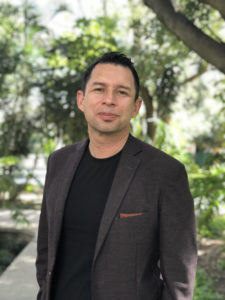 Victor M. Larios followed a higher education degree program at the ITESO University in Mexico (B.Sc. in Electronics Engineering), graduating in 1996. In 1997 he received a M.Sc. at the Université de Technologie de Compiègne in France, and then went onto get a Ph.D. in Computer Engineering in 2001. Since 2004, has been a Full Professor at the Information Systems Department at the University of Guadalajara in Mexico.
Victor M. Larios followed a higher education degree program at the ITESO University in Mexico (B.Sc. in Electronics Engineering), graduating in 1996. In 1997 he received a M.Sc. at the Université de Technologie de Compiègne in France, and then went onto get a Ph.D. in Computer Engineering in 2001. Since 2004, has been a Full Professor at the Information Systems Department at the University of Guadalajara in Mexico.
In April 2014, Dr. Victor M. Larios founded and became director of the “Smart Cities Innovation Center (SCIC)” at the University of Guadalajara, where he leads a group of researchers in Smart Cities and Information Technologies. The SCIC is a think-thank to help government, industry, and other academic partners to join efforts to improve the quality life and social well-being within an urban environment, by using technology as the core driver for transformation.
His primary research interests are Smart Cities, IoT Distributed Systems, Networking, Multiagent Systems, and Data Visualization using Virtual Reality.
Dr. Larios has published more than 70 papers in international scientific journals and conferences, and has published a book on “Serious Games”. Dr. Larios has ongoing collaborations in projects with High Technology industry and government, using design thinking and agile methodologies to accelerate technology transfer in living labs.
As an entrepreneur, he is the founder and CIO of the consulting company, IDI Smart Cities, which collaborates with Advion Solutions LTD. in Finland. Its main activities are market research, promote scholarships to develop local talent, and support for international projects in Latin American countries and the European Union. One of its key efforts is to introduce the Circular Economic Model as a sustainability component for Mega-Cities.
As a volunteer, Dr. Larios leads technically on the Guadalajara Smart City project for the government, and international ONGs, such as the IEEE. Victor M. Larios is a Senior Member of IEEE with 29 years of membership. Since 2013, he has led the “Guadalajara Core City” in the IEEE Smart Cities Initiative. Dr. Victor M. Larios is also a guest editor at the IEEE IoT Magazine and has been the IEEE International Smart Cities Conference (ISC2), 2020 general co-chair.
Since July 2019 he has been working together with Joel Myers, Chair of IEEE IoT Initiative for Smart Cities, to develop the “Internet of People” (IoP). A people-centric approach to connecting people within cities to build opportunities and growth, on a business and social level. In March 2020 the first IoP pilot project was launched by the Mexican State Government of Jalisco in order to support and incentivise local economies and communities in recovering from the COVID-19 pandemic, through the IoP cloud/mobile platform and a pioneering digital micro-currency, called HooziesTM.
Speakers
Alan Mickelson, Chairman of IEEE Smart Village
 Alan Mickelson is a faculty member at the University of Colorado at Boulder. Alan’s primary research field has been optical and microwave technologies for communication. For roughly the last decade, Alan has also been involved with the Mortenson Center in Global Engineering, primarily working on wireless communication for sparsely populated remote areas and solar energy training for areas without power. Alan has worked on development projects in Nepal, Peru, Haiti, Cameroon, Rwanda and Bolivia. Alan presently is the Chairman of the IEEE Smart Village Operations committee where he oversees sustainable development efforts in Nigeria, Cameroon, Uganda, Kenya and India. Alan received his BSEE from the University of Texas at El Paso and MS and PhD in Electrical Engineering with subject minor in Physics from California Institute of Technology in Pasadena, CA. He has been a visiting scientist in Byurakan Astrophysical Observatory in Byurakan Soviet Armenia and staff member of the Elektronikklaboratoriet of the Norwegian Institute of Technology (presently the Norwegian University of Science and Technology (NUST)) in Trondheim. Alan has also been a visiting scientist at Fondazione Ugo Bordoni in Rome.
Alan Mickelson is a faculty member at the University of Colorado at Boulder. Alan’s primary research field has been optical and microwave technologies for communication. For roughly the last decade, Alan has also been involved with the Mortenson Center in Global Engineering, primarily working on wireless communication for sparsely populated remote areas and solar energy training for areas without power. Alan has worked on development projects in Nepal, Peru, Haiti, Cameroon, Rwanda and Bolivia. Alan presently is the Chairman of the IEEE Smart Village Operations committee where he oversees sustainable development efforts in Nigeria, Cameroon, Uganda, Kenya and India. Alan received his BSEE from the University of Texas at El Paso and MS and PhD in Electrical Engineering with subject minor in Physics from California Institute of Technology in Pasadena, CA. He has been a visiting scientist in Byurakan Astrophysical Observatory in Byurakan Soviet Armenia and staff member of the Elektronikklaboratoriet of the Norwegian Institute of Technology (presently the Norwegian University of Science and Technology (NUST)) in Trondheim. Alan has also been a visiting scientist at Fondazione Ugo Bordoni in Rome.
Antonio Liotta, Full Professor, Faculty of Computer Science, Free University of Bolzano, Italy
 Antonio Liotta (https://bit.ly/UniBzLiotta) is Full Professor at the Faculty of Computer Science, Free University of Bolzano (Italy), where he teaches Data Science and Computer Networks. Antonio’s passion for artificial intelligence, has driven his academic career through the meanders of artificial vision, e-health, intelligent networks and intelligent systems. Antonio’s team is renowned for his contributions to micro-edge intelligence and miniaturized machine learning, which have significant potential in harnessing data-intensive systems, for instance in the context of smart cities, cyber-physical systems, Internet of Things, smart energy, and machine learning with humans in the loop. He has led the international team that has recently made a breakthrough in artificial neural networks, initiating a new research strand on “sparse neural networks for embedded learning” (doi.org/10.1038/s41467-018-04316-3). Antonio was the founding director of the Data Science Research Centre at the University of Derby. He has set up several cross-border virtual teams, and has been credited with over 350 publications involving, overall, more than 150 co-authors. Antonio is Editor-in-Chief of the Springer Internet of Things book series (springer.com/series/11636), and associate editor of several prestigious journals. He is co-author of the books “Networks for Pervasive Services: six ways to upgrade the Internet” (springer.com/gp/book/9789400714724) and “Data Science and Internet of Things” (springer.com/gp/book/9783030671969).
Antonio Liotta (https://bit.ly/UniBzLiotta) is Full Professor at the Faculty of Computer Science, Free University of Bolzano (Italy), where he teaches Data Science and Computer Networks. Antonio’s passion for artificial intelligence, has driven his academic career through the meanders of artificial vision, e-health, intelligent networks and intelligent systems. Antonio’s team is renowned for his contributions to micro-edge intelligence and miniaturized machine learning, which have significant potential in harnessing data-intensive systems, for instance in the context of smart cities, cyber-physical systems, Internet of Things, smart energy, and machine learning with humans in the loop. He has led the international team that has recently made a breakthrough in artificial neural networks, initiating a new research strand on “sparse neural networks for embedded learning” (doi.org/10.1038/s41467-018-04316-3). Antonio was the founding director of the Data Science Research Centre at the University of Derby. He has set up several cross-border virtual teams, and has been credited with over 350 publications involving, overall, more than 150 co-authors. Antonio is Editor-in-Chief of the Springer Internet of Things book series (springer.com/series/11636), and associate editor of several prestigious journals. He is co-author of the books “Networks for Pervasive Services: six ways to upgrade the Internet” (springer.com/gp/book/9789400714724) and “Data Science and Internet of Things” (springer.com/gp/book/9783030671969).
Aslı Ceren Mavikurt, Smart City Lead, Istanbul, Istanbul, Turkey
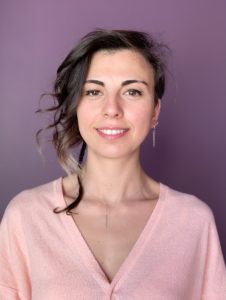 Ceren is a GIS solutions designer/ consultant with urban design (MSc) & planning background. During her past experiences, she had the chance to improve her skills in digital products/solution design and geo-spatial & digitalization strategy development. Currently leads the smart city unit of BİMTAŞ; the project development company owned by İstanbul Metropolitan Municipality. She helps solving complex urban problems by designing, developing and implementing geo-enabled digital systems with her team. She’s passionate about innovation and brings unique perspectives gained from her cross-industrial experience to the organizations she works with.
Ceren is a GIS solutions designer/ consultant with urban design (MSc) & planning background. During her past experiences, she had the chance to improve her skills in digital products/solution design and geo-spatial & digitalization strategy development. Currently leads the smart city unit of BİMTAŞ; the project development company owned by İstanbul Metropolitan Municipality. She helps solving complex urban problems by designing, developing and implementing geo-enabled digital systems with her team. She’s passionate about innovation and brings unique perspectives gained from her cross-industrial experience to the organizations she works with.
Edna Pasher, Co-founder and Chairperson of ISCI Israel Smart Cities Institute
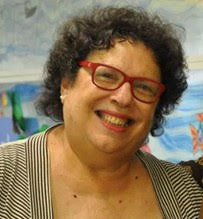 Dr. Edna Pasher earned her Ph.D. (1981) in Media Ecology at New York University’s Department of Communication Arts and Sciences. Edna Pasher founded EP as an international strategic management consulting firm in 1978 that provides customized consulting services to organizations both in the private, public, and third sectors. Edna is co-founder and chairperson of ISCI Israel Smart Cities Institute (NGO) which participates in international ICT R&D and innovation projects funded by the European Union, using a variety of qualitative and quantitative evaluation methodologies, modeling, modeling techniques, and analysis.
Dr. Edna Pasher earned her Ph.D. (1981) in Media Ecology at New York University’s Department of Communication Arts and Sciences. Edna Pasher founded EP as an international strategic management consulting firm in 1978 that provides customized consulting services to organizations both in the private, public, and third sectors. Edna is co-founder and chairperson of ISCI Israel Smart Cities Institute (NGO) which participates in international ICT R&D and innovation projects funded by the European Union, using a variety of qualitative and quantitative evaluation methodologies, modeling, modeling techniques, and analysis.
Fernando Bruegge, Research analyst at IoT Analytics, Germany
 Fernando is a research analyst at IoT Analytics. He covers various topics ranging from AI and Industrial IoT to Smart City. He holds a BS in Psychology and a MS in Cognitive Science.
Fernando is a research analyst at IoT Analytics. He covers various topics ranging from AI and Industrial IoT to Smart City. He holds a BS in Psychology and a MS in Cognitive Science.
IoT Analytics is a leading provider of market insights and strategic business intelligence for the Internet of Things (IoT) and Industry 4.0. We are trusted by 600+ leading companies around the world, including globally leading software and industrial players. Our key workstreams across the tech stack include IoT applications, IoT Platforms & Software, IoT Connectivity & Hardware with a special focus on Industrial IoT and Smart City. The product offering consists of Market Reports & Databases and, bespoke Research & Consulting. Our clients rank us “4.6/5” on customer satisfaction and consistently score us as “better” than our competitors, highlighting the in-depth and holistic analyses built on our industry background analyst team and interview-focused research.
George D Thomas, Vice President of Innovation & Strategic Initiatives, Connected DMV Managing Partner, New Urban Informatics
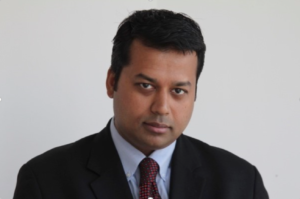 George Thomas is a thought leader and adviser to public and private sector organizations in the Americas, Europe, Africa and Asia. For more than twenty three years, George has held roles in sales, strategy and consulting with senior positions in large enterprises, and at non-profits, where he has helped develop, evaluate and implement grant awards. A dynamic leader and team builder, George has helped clients develop successful strategies and execute transformational projects in operations, capital improvement, organizational change management, and strategic planning.
George Thomas is a thought leader and adviser to public and private sector organizations in the Americas, Europe, Africa and Asia. For more than twenty three years, George has held roles in sales, strategy and consulting with senior positions in large enterprises, and at non-profits, where he has helped develop, evaluate and implement grant awards. A dynamic leader and team builder, George has helped clients develop successful strategies and execute transformational projects in operations, capital improvement, organizational change management, and strategic planning.
George founded, and serves as Managing Partner, for New Urban Informatics, a boutique advisory firm, providing expertise to some of the most innovative companies and governments focused on disruptive technologies analytics and Smart Cities. Clients include Hatch, a 9000-person Engineering & Design company, where he served as Global Director, Smart Infrastructure. In this role, he led Hatch’s efforts in helping clients create new smart and digital value for Infrastructure and Urban Planning domains. George supports the New Urbana Venture Studio, which combines the best of management consulting and venture studios to build companies, teams, and solutions that make a difference, with a focus on underserved communities.
He also currently serves as Vice President of Innovation and Strategic Initiatives for Connected DMV, a nonprofit regional collaboration across Washington D.C., Maryland, and Virginia – the DMV. Its participants include local jurisdictions, federal agencies, industry, community, and academia who work together to advance the region’s top opportunities, generate economic development, and shape a stronger future for the well-being of our region.
For 16+ years, George served as a Partner at IBM in roles such as Global Director of Strategy & Markets for IBM’s Government Industry vertical; Director of Smarter Cities for IBM Greater China, based in Beijing, China; and Global Director for Smarter Cities Sales Strategy & Execution. George has successfully delivered several complex, mission-critical transformation engagements which include innovative and breakthrough projects in technology, process and people transformation. Prior to joining IBM in 2000, George held senior positions with the management, business consulting and engineering practices of PSINet; Metamor; and Mott MacDonald respectively. In these roles, he was involved in global multi-million-dollar engagements covering complex implementations in finance, human resources, supply chain, reengineering, process improvement, and core heavy engineering projects.
George is a recognized industry expert at the intersection of business and technology in areas such as cognitive computing, deep analytics, smarter cities, optimization & simulation, Blockchain, the API economy, internet of things, and cloud computing. George is a founding member of the Smarter Cities Council, a member of the US Nation Institutes of Standards and Technology’s Executive Committee for Global City Teams Challenge, a member of American Society of Civil Engineer’s standards committee for resilience and sustainability. George is a mentor, board member and coach to several start-ups and innovative companies. He is a
regular speaker at conferences, radio shows and events including at the C40 Mayor’s Conferences, TEDx, Chambers of Commerce, the American Institute of Architects, Smart City
Expo, US Infrastructure Week, the World Bank, and the United Nations. George holds a Master’s Degree in Engineering and Management from the Georgia Institute of Technology in Atlanta, Georgia, USA.
Gilles Betis, Founder of OrbiCité (France)
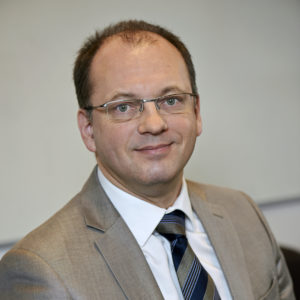 Gilles Betis is the founder of OrbiCité, a consulting company dedicated to Smart Cities, Mobility, Innovation, Entrepreneurship and Education. He previously held various positions in high-tech international companies (Thales) and a European agency dedicated to digital technologies (EIT Digital). In 2013 he co-founded the IEEE Smart Cities Initiative and have been chairing it until 2017 during its incubation phase. He was also involved as an associate with natural idées, a startup designing multi-services urban hubs. He is a Smart City teacher at the ESTP engineering school (École Spéciale des Travaux Publics).
Gilles Betis is the founder of OrbiCité, a consulting company dedicated to Smart Cities, Mobility, Innovation, Entrepreneurship and Education. He previously held various positions in high-tech international companies (Thales) and a European agency dedicated to digital technologies (EIT Digital). In 2013 he co-founded the IEEE Smart Cities Initiative and have been chairing it until 2017 during its incubation phase. He was also involved as an associate with natural idées, a startup designing multi-services urban hubs. He is a Smart City teacher at the ESTP engineering school (École Spéciale des Travaux Publics).
Since the end of the eighties, he has constantly been involved with prospective, innovation and design of complex systems, as well as entrepreneurship and value creation. Having an extensive industrial experience in Intelligent Transportation Systems and Smart Cities (mobility, data, security and resilience, civic tech), he always linked up emerging behaviours and societal needs to innovative technological solutions, allowing smooth adoption by final users. Today, he is emphasizing on active education, integrating training, coaching and consulting in a holistic skills improvement strategy for companies and smart cities stakeholders. Gilles Betis was graduated in 1987 from École Supérieure d’Électricité in France.
Gilles Fayad Director of Initiatives, AI Commons
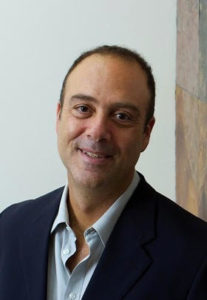 Gilles is an innovation addict with 20+ years in new products development and ecosystems management worldwide at companies such as Qualcomm, Texas Instruments, Rockwell, or Nortel. He first tackled AI in the context of his Master’s of Electrical Engineering at McGill University in Montreal, Canada and never stopped focusing on emerging technologies since then. In this context he was privileged to work on smart cities propositions in Dubai. His deep fascination for the impact of technology on society lead him to contribute his industry experience in in emerging technologies product development and ecosystem growth to AI Commons, where he runs an AI capacity building initiative in emerging countries. He also leads the technical workgroup of the IEEE AI-driven innovation for Cities and People, mentors startups, advises VCs, and occasionally tutors AI management courses.
Gilles is an innovation addict with 20+ years in new products development and ecosystems management worldwide at companies such as Qualcomm, Texas Instruments, Rockwell, or Nortel. He first tackled AI in the context of his Master’s of Electrical Engineering at McGill University in Montreal, Canada and never stopped focusing on emerging technologies since then. In this context he was privileged to work on smart cities propositions in Dubai. His deep fascination for the impact of technology on society lead him to contribute his industry experience in in emerging technologies product development and ecosystem growth to AI Commons, where he runs an AI capacity building initiative in emerging countries. He also leads the technical workgroup of the IEEE AI-driven innovation for Cities and People, mentors startups, advises VCs, and occasionally tutors AI management courses.
Grigorios Fountas, Lecturer and Assistant Professor at the Transport Research Institute of Edinburgh Napier University, Scotland
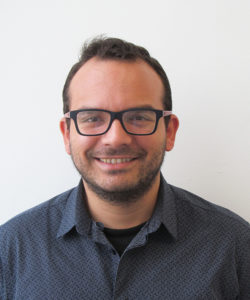 Grigorios (Greg) Fountas is a Lecturer (Assistant Professor) at the Transport Research Institute of Edinburgh Napier University. He received a M.Eng degree in Civil Engineering from the National Technical University of Athens in Greece, and his doctorate from the University at Buffalo, The State University of New York. His research interests include statistical and econometric methods for interdisciplinary applications, big data analytics, empirical quantitative methods, and public perceptions towards new technologies, products, and services. He has contributed to the development of novel statistical and econometric models that account for unobserved heterogeneity and other statistical issues and can be applied to large datasets. He has contributed as a Researcher or Principal Investigator / Co-Investigator to various projects related to the evaluation of traffic safety, calming and injury prevention interventions, the development of informatics platforms for massive and disparate data and state-of-the-art statistical frameworks for the analysis of perceptual and behavioural data associated with the acceptance of new aviation or urban mobility technologies. These projects have been funded by Federal or Regional establishments in the UK and US. He is Review Editor of the journal “Frontiers in Built Environment” (Nature Publishing Group, NPG) and Editorial Board member of Elsevier Science’s journal “Analytic Methods in Accident Research” and the Oxford Press journal’s “Transportation Safety and Environment”. He also serves as member and Paper Review Coordinator of the Transportation Research Board (TRB) AED60 Committee on Statistical Methods
Grigorios (Greg) Fountas is a Lecturer (Assistant Professor) at the Transport Research Institute of Edinburgh Napier University. He received a M.Eng degree in Civil Engineering from the National Technical University of Athens in Greece, and his doctorate from the University at Buffalo, The State University of New York. His research interests include statistical and econometric methods for interdisciplinary applications, big data analytics, empirical quantitative methods, and public perceptions towards new technologies, products, and services. He has contributed to the development of novel statistical and econometric models that account for unobserved heterogeneity and other statistical issues and can be applied to large datasets. He has contributed as a Researcher or Principal Investigator / Co-Investigator to various projects related to the evaluation of traffic safety, calming and injury prevention interventions, the development of informatics platforms for massive and disparate data and state-of-the-art statistical frameworks for the analysis of perceptual and behavioural data associated with the acceptance of new aviation or urban mobility technologies. These projects have been funded by Federal or Regional establishments in the UK and US. He is Review Editor of the journal “Frontiers in Built Environment” (Nature Publishing Group, NPG) and Editorial Board member of Elsevier Science’s journal “Analytic Methods in Accident Research” and the Oxford Press journal’s “Transportation Safety and Environment”. He also serves as member and Paper Review Coordinator of the Transportation Research Board (TRB) AED60 Committee on Statistical Methods
Gyu Myoung Lee is with the Liverpool John Moores University (LJMU), UK
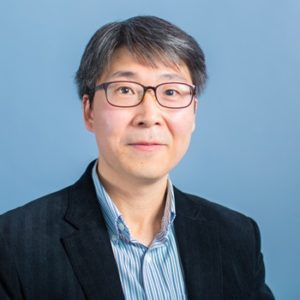 Gyu Myoung Lee is with the Liverpool John Moores University (LJMU), UK and with KAIST Institute for IT convergence, Korea. Prior to joining the LJMU, he worked with the Institut Mines-Telecom, Telecom SudParis, France, from 2008. He has been actively working for standardization in ITU-T, IETF and oneM2M, etc., and currently serves as a WP chair in SG13, the Rapporteur of Q16/13 and Q4/20 as well as a vice-chair of ITU-T Focus Group on Autonomous Networks. He was also the chair of ITU-T Focus Group on data processing and management (FG-DPM) to support IoT and smart cities & communities. He is a Senior Member of IEEE.
Gyu Myoung Lee is with the Liverpool John Moores University (LJMU), UK and with KAIST Institute for IT convergence, Korea. Prior to joining the LJMU, he worked with the Institut Mines-Telecom, Telecom SudParis, France, from 2008. He has been actively working for standardization in ITU-T, IETF and oneM2M, etc., and currently serves as a WP chair in SG13, the Rapporteur of Q16/13 and Q4/20 as well as a vice-chair of ITU-T Focus Group on Autonomous Networks. He was also the chair of ITU-T Focus Group on data processing and management (FG-DPM) to support IoT and smart cities & communities. He is a Senior Member of IEEE.
Hector Dominguez Aguirre, Open Data Coordinator at the City of Portland, Oregon
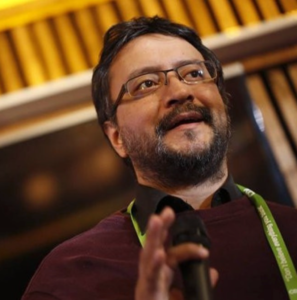 Hector is the Open Data Coordinator at the City of Portland, Oregon and part of the Smart City PDX team. In addition to Open Data initiatives, Hector has led privacy and information initiatives in the City that includes use of ethical tools for technology solutions assessment, privacy and information protection principles, establishing the citywide privacy and surveillance technologies strategies and procedures, and policy development including the face recognition technologies and Surveillance policies.
Hector is the Open Data Coordinator at the City of Portland, Oregon and part of the Smart City PDX team. In addition to Open Data initiatives, Hector has led privacy and information initiatives in the City that includes use of ethical tools for technology solutions assessment, privacy and information protection principles, establishing the citywide privacy and surveillance technologies strategies and procedures, and policy development including the face recognition technologies and Surveillance policies.
João Barros, Founder and CEO of Veniam
 An award-winning wireless engineer, academic leader and passionate entrepreneur, João loves to turn complex theorems and algorithms into products and services that can make a real difference in people’s lives. After more than a decade developing new wireless networking technologies at Technische Universitaet Muenchen, Universidade do Porto, MIT, and Carnegie Mellon, João founded two venture-backed startups, Streambolico and Veniam, where he serves as board director and CEO respectively. His work has led to 160 science and technology papers, as well as feature articles by NPR, BBC, MIT Technology Review, The Atlantic, and TechCrunch.
An award-winning wireless engineer, academic leader and passionate entrepreneur, João loves to turn complex theorems and algorithms into products and services that can make a real difference in people’s lives. After more than a decade developing new wireless networking technologies at Technische Universitaet Muenchen, Universidade do Porto, MIT, and Carnegie Mellon, João founded two venture-backed startups, Streambolico and Veniam, where he serves as board director and CEO respectively. His work has led to 160 science and technology papers, as well as feature articles by NPR, BBC, MIT Technology Review, The Atlantic, and TechCrunch.
João Barros has received several awards, including the 2010 IEEE Communications Society Young Researcher Award for the Europe, Middle East and Africa region, the 2011 IEEE ComSoC and Information Theory Society Joint Paper Award, the 2012 BES National Innovation Award, the 2013 Building Global Innovators Grand Prize (ISCTE-IUL and MIT) and a state-wide best teaching award by the Bavarian State Ministry of Sciences, Research and the Arts.
João Barros has a Ph.D. degree in Electrical Engineering and Information Technology from the Technische Universitaet Muenchen (Germany), his undergraduate education in Electrical and Computer Engineering from the Universidade do Porto, Portugal and Universitaet Karlsruhe, Germany, and a performing arts degree in flute from the Music Conservatory of Porto, Portugal.
Jorge J. Gómez Sanz, University of Madrid
 Jorge J. Gómez Sanz is an Associate Professor since 2008 in the department of Software Engineering and Artificial Intelligence of the Faculty of Computer Science at UCM. He holds a degree in Computer Science and a PhD in Computer Systems from the UCM. He has developed his research mainly in the field of Distributed Artificial Intelligence, with more than 150 publications and reaching more than 4400 citations and an h index of 31 according to google scholar. Other areas in which he has developed activity are Software Agents, the Internet of Things (Internet of Things or IoT), Ambient Assisted Living (AAL), Smart Grids and teaching innovation through Social Networks. He is a member of the IEEE CEDA, and participates on its behalf on the IEEE IoT Activities Board for the promotion of IoT in various fields. He also leads the IEEE IoT Education working group. Currently, he is vice-chancelor for Tecnology and Sustainability in the Universidad Complutense de Madrid.
Jorge J. Gómez Sanz is an Associate Professor since 2008 in the department of Software Engineering and Artificial Intelligence of the Faculty of Computer Science at UCM. He holds a degree in Computer Science and a PhD in Computer Systems from the UCM. He has developed his research mainly in the field of Distributed Artificial Intelligence, with more than 150 publications and reaching more than 4400 citations and an h index of 31 according to google scholar. Other areas in which he has developed activity are Software Agents, the Internet of Things (Internet of Things or IoT), Ambient Assisted Living (AAL), Smart Grids and teaching innovation through Social Networks. He is a member of the IEEE CEDA, and participates on its behalf on the IEEE IoT Activities Board for the promotion of IoT in various fields. He also leads the IEEE IoT Education working group. Currently, he is vice-chancelor for Tecnology and Sustainability in the Universidad Complutense de Madrid.
Kent Larson Director, City Science research group at the MIT Media Lab
 Kent Larson is Director of the City Science research group at the MIT Media Lab. Before joining MIT full-time in 2000, he practiced architecture for 15 years in New York City. His research focuses on developing urban interventions that enable more entrepreneurial, livable, high-performance urban districts. Projects include compact transformable housing, ultralight autonomous mobility systems, sensing and algorithms to recognize and respond to complex human behavior, and advanced modeling, simulation, and tangible interfaces for urban design. He led the establishment of an international network affiliated City Science labs in Shanghai, Taipei, Ho Chi Minh City, Toronto, Helsinki, Hamburg, Andorra, and Guadalajara. Larson and his researchers from his MIT lab received 10-Year Impact Awards from Ubicomp in 2017 and 2019 for recognition of work that, with the test of time, has had the greatest impact. His book, Louis I. Kahn: Unbuilt Masterworks was selected as one of the Ten Best Books in Architecture by the New York Times Review of Books. Larson’s TED talk, “Brilliant designs to fit more people in every city,” summarized his vision for cities in the future. He has founded or cofounded multiple MIT spinoff ventures including ORI Living, an architectural robotics company creating systems for dynamically reconfigurable environments.
Kent Larson is Director of the City Science research group at the MIT Media Lab. Before joining MIT full-time in 2000, he practiced architecture for 15 years in New York City. His research focuses on developing urban interventions that enable more entrepreneurial, livable, high-performance urban districts. Projects include compact transformable housing, ultralight autonomous mobility systems, sensing and algorithms to recognize and respond to complex human behavior, and advanced modeling, simulation, and tangible interfaces for urban design. He led the establishment of an international network affiliated City Science labs in Shanghai, Taipei, Ho Chi Minh City, Toronto, Helsinki, Hamburg, Andorra, and Guadalajara. Larson and his researchers from his MIT lab received 10-Year Impact Awards from Ubicomp in 2017 and 2019 for recognition of work that, with the test of time, has had the greatest impact. His book, Louis I. Kahn: Unbuilt Masterworks was selected as one of the Ten Best Books in Architecture by the New York Times Review of Books. Larson’s TED talk, “Brilliant designs to fit more people in every city,” summarized his vision for cities in the future. He has founded or cofounded multiple MIT spinoff ventures including ORI Living, an architectural robotics company creating systems for dynamically reconfigurable environments.
Kevin Taylor, Segment Development Manager, Smart Cities, Axis Communications, Inc.
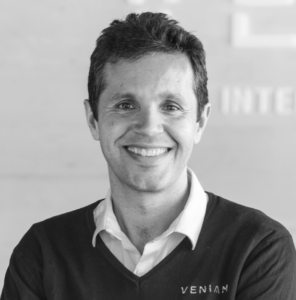 Kevin Taylor is the Local Government & Smart Cities Segment Development Manager at Axis Communications, Inc. In this capacity, he is responsible for developing strategies and building ecosystem relationships to expand Axis’ presence as a thought leader and facilitator in the rapidly emerging Smart Cities space in North America.
Kevin Taylor is the Local Government & Smart Cities Segment Development Manager at Axis Communications, Inc. In this capacity, he is responsible for developing strategies and building ecosystem relationships to expand Axis’ presence as a thought leader and facilitator in the rapidly emerging Smart Cities space in North America.
Mr. Taylor has more than 19 years of experience building market share in the Low Voltage and Physical Security industry. He contributes to industry advancement through participation in the IEEE P2784 Smart Cities Standards working group, the NIST Smart Cities Ethics Action Cluster, and the CTIA Smart Cities Steering Committee.
Prior to joining Axis in 2014, Mr. Taylor held multiple positions of increasing responsibility within the Security Strategic Business Unit of Honeywell International. Mr. Taylor previously served as the Associate Director for the state of GA low voltage association, is a member of the American Society for Industrial Security, and served in 2020 as Co-Chair of the Smart Utilities Working Group of the Cellular Telecommunications Industry Association.
Lindsay Frost, Chief Standardisation Engineer at NEC Laboratories Europe GmbH
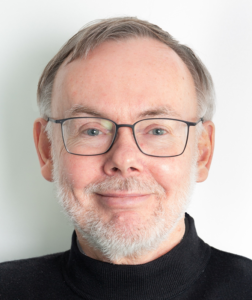 Lindsay Frost is Chief Standardisation Engineer at NEC Laboratories Europe GmbH, chairman of the ETSI ISG CIM group for Context Information Management, Board member of ETSI, and ETSI delegate to the Sector Forum for Smart and Sustainable Cities and Communities as well as delegate to a sub-group of the Digitizing European Industry activity. His previous roles included board member of HGI, co-chairman of HGI Smart Home group, Chair of ETSI TISPAN WG5 Home Networks, Chair of WFA Mobile Convergence group. Lindsay Frost has a Ph.D in experimental physics, a strong interest in medical engineering and a passion for promoting better use of standards for Smart Cities and communities.
Lindsay Frost is Chief Standardisation Engineer at NEC Laboratories Europe GmbH, chairman of the ETSI ISG CIM group for Context Information Management, Board member of ETSI, and ETSI delegate to the Sector Forum for Smart and Sustainable Cities and Communities as well as delegate to a sub-group of the Digitizing European Industry activity. His previous roles included board member of HGI, co-chairman of HGI Smart Home group, Chair of ETSI TISPAN WG5 Home Networks, Chair of WFA Mobile Convergence group. Lindsay Frost has a Ph.D in experimental physics, a strong interest in medical engineering and a passion for promoting better use of standards for Smart Cities and communities.
Manas Pradhan, Scientist at Fraunhofer FKIE, Germany
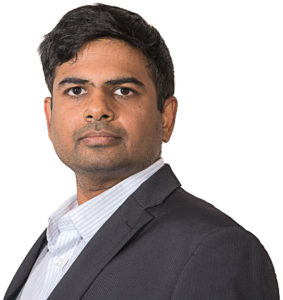 Manas Pradhan is a scientist working at Fraunhofer FKIE, Germany and a PhD fellow at University of Oslo, Norway. He develops Service-Oriented Architectures and technology oriented solutions for realizing future Smart City ICT solutions with focus on IoT and interoperability.
Manas Pradhan is a scientist working at Fraunhofer FKIE, Germany and a PhD fellow at University of Oslo, Norway. He develops Service-Oriented Architectures and technology oriented solutions for realizing future Smart City ICT solutions with focus on IoT and interoperability.
He leads and coordinates standardization activities across the globe with government partners, research organisations and industry bodies. The goal of such initiatives is to realize data sovereignty and neutrality for Smart Cities which works in practice. He currently represents Germany in the NATO for Federated Interoperability of Military C2 and IoT Systems. He is also the Research and Development Task Group Lead for IEEE IoT Consortium for Smart Cities Working Group and Vice-Chair for Standard for Smart City Component Systems Discovery and Semantic Exchange of Objectives.
Matthias Finger, the Center for Digital Trust (C4DT) at Ecole Polytechnique Fédérale in Lausanne, Switzerland
 Matthias Finger is a Professor Emeritus in charge of Digital Governance and Regulation at the Center for Digital Trust (C4DT) at Ecole Polytechnique Fédérale in Lausanne, Switzerland (EPFL). He holds a Ph.D. in Political Science from the University of Geneva. He has been an Assistant Professor at Syracuse University (New York), an Associate Professor at Columbia University (New York), a Professor of Management of Public Enterprises at the Swiss Federal Institute of Public Administration, and between 2002 and 2020 the Swiss Post Chair in Management of Network Industries at EPFL. Since 2010, he is a part-time professor at the European University Institute (EUI) in Florence, Italy, where he directs the Florence School of Regulation’s Transport Area (FSR-T). Since 2017, he is also a professor at the Faculty of Management at Istanbul Technical University (ITÜ), directing the Istanbul Center for Regulation (IC4R). He is the founder (in 2014) of the global executive program on the Innovative Governance of Large Urban Systems (IGLUS).
Matthias Finger is a Professor Emeritus in charge of Digital Governance and Regulation at the Center for Digital Trust (C4DT) at Ecole Polytechnique Fédérale in Lausanne, Switzerland (EPFL). He holds a Ph.D. in Political Science from the University of Geneva. He has been an Assistant Professor at Syracuse University (New York), an Associate Professor at Columbia University (New York), a Professor of Management of Public Enterprises at the Swiss Federal Institute of Public Administration, and between 2002 and 2020 the Swiss Post Chair in Management of Network Industries at EPFL. Since 2010, he is a part-time professor at the European University Institute (EUI) in Florence, Italy, where he directs the Florence School of Regulation’s Transport Area (FSR-T). Since 2017, he is also a professor at the Faculty of Management at Istanbul Technical University (ITÜ), directing the Istanbul Center for Regulation (IC4R). He is the founder (in 2014) of the global executive program on the Innovative Governance of Large Urban Systems (IGLUS).
Michael M. Samuelian, FAIA, AICP
 Michael Samuelian the Founding Director of the Urban Tech Hub at Cornell Tech, a venture that bridges tech industries and academic research to address pressing urban challenges and public needs. He is an urban planner, real estate developer, professor and most recently the President and CEO of the Trust for Governors Island. From the revitalization Lower Manhattan after 9/11 to the creation of a new neighborhood in Hudson Yards and the activation of Governors Island he’s helped plan, design and develop some of the most transformative projects in New York City. Michael is an Assistant Professor at Cooper Union.
Michael Samuelian the Founding Director of the Urban Tech Hub at Cornell Tech, a venture that bridges tech industries and academic research to address pressing urban challenges and public needs. He is an urban planner, real estate developer, professor and most recently the President and CEO of the Trust for Governors Island. From the revitalization Lower Manhattan after 9/11 to the creation of a new neighborhood in Hudson Yards and the activation of Governors Island he’s helped plan, design and develop some of the most transformative projects in New York City. Michael is an Assistant Professor at Cooper Union.
Prior to his appointment as President of the Trust, Michael was a Vice President with Related Companies, where he was responsible for the planning and design of Hudson Yards. After 9/11, Michael was the Director of Lower Manhattan Special Projects at the New York City Department of City Planning, helping the city’s efforts to redevelop downtown.
Mohamed Bakhouya, Professor of Computer Science at the International University of Rabat, Morocco
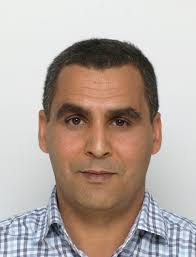 Mohamed Bakhouya is a Professor of Computer Science at the International University of Rabat. He obtained his HDR from UHA-France in 2013 and his PhD from UTBM-France in 2005. He has more than ten years experiences in participating and working in sponsored ICT projects. He was EiC of IJARAS journal and also serves as a guest editor of a number of international journals, e.g., ACM Trans. on Autonomous and Adaptive Systems, Product Development Journal, Concurrency and Computation: Practice and Experience, FGCS, and MICRO. He has published more than 100 papers in international journals, books, and conferences. His research interests include various aspects related to the design, validation, and implementation of distributed and adaptive systems, architectures, and protocols.
Mohamed Bakhouya is a Professor of Computer Science at the International University of Rabat. He obtained his HDR from UHA-France in 2013 and his PhD from UTBM-France in 2005. He has more than ten years experiences in participating and working in sponsored ICT projects. He was EiC of IJARAS journal and also serves as a guest editor of a number of international journals, e.g., ACM Trans. on Autonomous and Adaptive Systems, Product Development Journal, Concurrency and Computation: Practice and Experience, FGCS, and MICRO. He has published more than 100 papers in international journals, books, and conferences. His research interests include various aspects related to the design, validation, and implementation of distributed and adaptive systems, architectures, and protocols.
Najat Zarrouk, Director of the African Local Government Academy (ALGA) of UCLG-Africa
 Dr. Najat Zarrouk is the Director of the African Local Government Academy (ALGA) of UCLG-Africa), the Vice-Chairperson of the African Public Service-Human Resource Managers Network (APS-HRMNet) and Member of the Board of the International Association of Schools and Institutes of Administration(AISIA). She has 39 years of experience in the Public Service at national, continental and global levels, in particular as a former Civil servant in the Ministry of the Interior of Morocco and Member of the UN Committee of Experts on Public Administration (CEPA). Author of many essays and articles on issues related to public administration, and several official documents for the UN, she received many national and international recognitions, namely: The National Order of Merit – Exceptional Degree (Meritorious Service Award) by His Majesty King Mohammed VI of Morocco (2013); the UN Public Service Award (UNPSA), First Place in Africa (2013), the OP DWIVEDI Award from AISIA (2015), and the Gold Medal 2018 from the African Association for Public Administration and Management.
Dr. Najat Zarrouk is the Director of the African Local Government Academy (ALGA) of UCLG-Africa), the Vice-Chairperson of the African Public Service-Human Resource Managers Network (APS-HRMNet) and Member of the Board of the International Association of Schools and Institutes of Administration(AISIA). She has 39 years of experience in the Public Service at national, continental and global levels, in particular as a former Civil servant in the Ministry of the Interior of Morocco and Member of the UN Committee of Experts on Public Administration (CEPA). Author of many essays and articles on issues related to public administration, and several official documents for the UN, she received many national and international recognitions, namely: The National Order of Merit – Exceptional Degree (Meritorious Service Award) by His Majesty King Mohammed VI of Morocco (2013); the UN Public Service Award (UNPSA), First Place in Africa (2013), the OP DWIVEDI Award from AISIA (2015), and the Gold Medal 2018 from the African Association for Public Administration and Management.
Narendra Mangra
 Narendra Mangra, Principal at GlobeNet LLC, is a transdisciplinary advisor and consultant in industry, academia, and government. He currently serves as the Future Networks International Network Generations Roadmap (INGR) Co-Chair, Applications and Services WG Co-Chair, INGR Young Professionals Education Chair, P1950.1 Smart Cities Framework Standards Development Co-Chair, Public Safety Task Force Contributor, Rural Communications Contributor, and the Telehealth Industry Connections Initiative Co-Chair. Narendra is also an Adjunct Professor at the George Mason University.
Narendra Mangra, Principal at GlobeNet LLC, is a transdisciplinary advisor and consultant in industry, academia, and government. He currently serves as the Future Networks International Network Generations Roadmap (INGR) Co-Chair, Applications and Services WG Co-Chair, INGR Young Professionals Education Chair, P1950.1 Smart Cities Framework Standards Development Co-Chair, Public Safety Task Force Contributor, Rural Communications Contributor, and the Telehealth Industry Connections Initiative Co-Chair. Narendra is also an Adjunct Professor at the George Mason University.
Narendra has a deep foundation in the wireless telecommunications ecosystem and wide experience with mobile and fixed broadband telecommunications, public safety, agriculture, transportation, and health care end users. His experience spans several key roles within the end-to-end mobile ecosystem stages, network design and deployment lifecycle, procurement lifecycle, and the program/project management lifecycles. His current interests include transdisciplinary frameworks, 5G and technology convergence, smart regions, and related ecosystems.
Nélio Alessandro Azevedo Cacho, Assoc. Prof. at the Federal University of Rio Grande do Norte (UFRN), Brazil
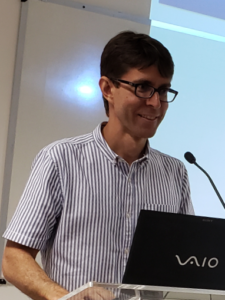 Nélio Cacho is an associate professor at the Federal University of Rio Grande do Norte (UFRN) in Brazil. He holds a Ph.D. in Computer Science from the University of Lancaster (UK). He is a researcher at DIMAp since 2010, as a member of the Distributed Systems LAB, with research interests in Smart Cities solutions, mobile and ubiquitous environments. He currently coordinates the Smart Metropolis project which has deployed many smart solutions to improve the quality of life of Natal and many other cities in Brazil. He is the author or co-author of over 100 peer-reviewed scientific papers, including best paper awards in many international conferences.
Nélio Cacho is an associate professor at the Federal University of Rio Grande do Norte (UFRN) in Brazil. He holds a Ph.D. in Computer Science from the University of Lancaster (UK). He is a researcher at DIMAp since 2010, as a member of the Distributed Systems LAB, with research interests in Smart Cities solutions, mobile and ubiquitous environments. He currently coordinates the Smart Metropolis project which has deployed many smart solutions to improve the quality of life of Natal and many other cities in Brazil. He is the author or co-author of over 100 peer-reviewed scientific papers, including best paper awards in many international conferences.
Prasanth Mohan, Vice-Chair of the IEEE Student Activities Committee – SAC and Senior Account Manager at QuestionPro
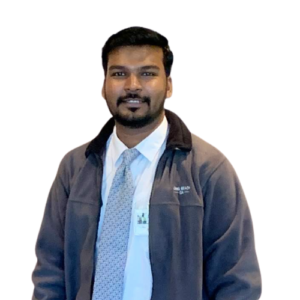 Prasanth Mohan is a Computer Science and Engineering Graduate from Anna University, Chennai. He currently works with QuestionPro as Senior Account Manager (Customer Success) for the product ‘Workforce’. Earlier he led the customer operations for REDDX Technologies – 3D Printer Manufacturing and Services Company headquartered in Chennai having operations across India. He is associated with IEEE for the last 10-years and he has organized more than 175+ events. Prasanth is currently serving as the Vice-Chair for the MGA Student Activities Committee. Prior to this role, he led the IEEEXtreme Competition & Student Awards Committee. He visited more than 150+ IEEE Student Branches around the world for various Member engagement activities. Prasanth is a recipient of the Richard E Merwin Scholarship from IEEE Computer Society, Larry K Wilson Student Volunteer Award (Runner-Up), MGA Innovation Award for IEEEmadC & MGA YP Achievement Award from IEEE MGA.
Prasanth Mohan is a Computer Science and Engineering Graduate from Anna University, Chennai. He currently works with QuestionPro as Senior Account Manager (Customer Success) for the product ‘Workforce’. Earlier he led the customer operations for REDDX Technologies – 3D Printer Manufacturing and Services Company headquartered in Chennai having operations across India. He is associated with IEEE for the last 10-years and he has organized more than 175+ events. Prasanth is currently serving as the Vice-Chair for the MGA Student Activities Committee. Prior to this role, he led the IEEEXtreme Competition & Student Awards Committee. He visited more than 150+ IEEE Student Branches around the world for various Member engagement activities. Prasanth is a recipient of the Richard E Merwin Scholarship from IEEE Computer Society, Larry K Wilson Student Volunteer Award (Runner-Up), MGA Innovation Award for IEEEmadC & MGA YP Achievement Award from IEEE MGA.
Ray Walshe Director of European Observatory for ICT Standards (EUOS), IRELAND
 Ray is Senior Researcher in the ADAPT Research Centre in Dublin City University (DCU), IRELAND. He began his career in industry as a software engineer, software consultant and project manager with LM Ericsson, Software and Systems Engineering Limited and Siemens. Joining the School of Computing DCU in 1995 he delivers AI, IoT and Data Governance modules on Undergraduate, Masters, and PhD Programmes and is current (2021) Chair of the Graduate Diploma in Web Technologies. Ray is Chair of Big Data Value Association Standards Task Force, Chair of Network Development @ Gender Responsive Standards at the United Nations Economic Committee for Europe, Chair of the External Advisory Board of StandICT.eu, Research Partner in StandICT2023.eu and Co-Lead on ELITE-S Fellowship Programme for Emerging Technologies Standardization (Elite-Fellowships.eu). Ray has been a Digital Leader with World Economic Forum since 2016 and was appointed to the IEEE European Public Policy Committee on ICT in 2019 and is currently the AI WG Lead for IEEE EPPC. Ray was also appointed in 2020 to the OECD Network of Experts (ONE AI).
Ray is Senior Researcher in the ADAPT Research Centre in Dublin City University (DCU), IRELAND. He began his career in industry as a software engineer, software consultant and project manager with LM Ericsson, Software and Systems Engineering Limited and Siemens. Joining the School of Computing DCU in 1995 he delivers AI, IoT and Data Governance modules on Undergraduate, Masters, and PhD Programmes and is current (2021) Chair of the Graduate Diploma in Web Technologies. Ray is Chair of Big Data Value Association Standards Task Force, Chair of Network Development @ Gender Responsive Standards at the United Nations Economic Committee for Europe, Chair of the External Advisory Board of StandICT.eu, Research Partner in StandICT2023.eu and Co-Lead on ELITE-S Fellowship Programme for Emerging Technologies Standardization (Elite-Fellowships.eu). Ray has been a Digital Leader with World Economic Forum since 2016 and was appointed to the IEEE European Public Policy Committee on ICT in 2019 and is currently the AI WG Lead for IEEE EPPC. Ray was also appointed in 2020 to the OECD Network of Experts (ONE AI).
Rosaldo J. F. Rossetti, Assoc. Prof. and member of the executive committee of the Dept. of Informatics Engineering, and a senior research fellow and member of the directive board of the Artificial Intelligence and Computer Science Lab at the University of Porto, Portugal
 Rosaldo J. F. Rossetti is an associate professor and member of the executive committee of the Department of Informatics Engineering, and a senior research fellow and member of the directive board of the Artificial Intelligence and Computer Science Lab at the University of Porto, Portugal. Dr Rossetti served as an elected member of the Board of Governors of the IEEE ITS Society during term 2011-2013 and was a member of the steering committee of the IEEE Smart Cities Initiative from 2013 to 2017. He is currently a co-chair of IEEE ITS Society’s Artificial Transportation Systems and Simulation Technical Activities Committee, for which he received the Best TAC Award in 2017. He has served as an associate editor of the IEEE Transactions on Intelligent Transportation Systems and the ITS Department editor of the IEEE Intelligent System Magazine. Dr Rossetti’s primary research interests include behavioural modelling, social simulation, and machine learning. He focuses on the applications of multiagent systems as a modelling metaphor to address issues in artificial transportation systems, future mobility paradigms, urban smartification, and explores the potential uses of serious games and gamification in mobility systems and sustainable development. He is also a member of ACM, APPIA (the Portuguese AI Society), and the European Social Simulation Association. He holds a PhD in Computer Science from INF-UFRGS, Brazil, and developed his doctoral research within Leeds University’s Institute for Transport Studies, UK
Rosaldo J. F. Rossetti is an associate professor and member of the executive committee of the Department of Informatics Engineering, and a senior research fellow and member of the directive board of the Artificial Intelligence and Computer Science Lab at the University of Porto, Portugal. Dr Rossetti served as an elected member of the Board of Governors of the IEEE ITS Society during term 2011-2013 and was a member of the steering committee of the IEEE Smart Cities Initiative from 2013 to 2017. He is currently a co-chair of IEEE ITS Society’s Artificial Transportation Systems and Simulation Technical Activities Committee, for which he received the Best TAC Award in 2017. He has served as an associate editor of the IEEE Transactions on Intelligent Transportation Systems and the ITS Department editor of the IEEE Intelligent System Magazine. Dr Rossetti’s primary research interests include behavioural modelling, social simulation, and machine learning. He focuses on the applications of multiagent systems as a modelling metaphor to address issues in artificial transportation systems, future mobility paradigms, urban smartification, and explores the potential uses of serious games and gamification in mobility systems and sustainable development. He is also a member of ACM, APPIA (the Portuguese AI Society), and the European Social Simulation Association. He holds a PhD in Computer Science from INF-UFRGS, Brazil, and developed his doctoral research within Leeds University’s Institute for Transport Studies, UK
Ryan Kurtzman, Smart Cities Program Manager for the City of Long Beach, CA
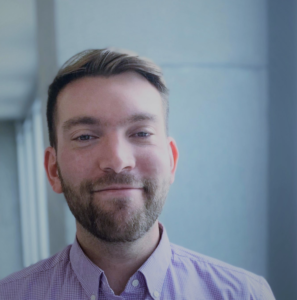 Ryan’s experience includes developing community programs and policies that leverage technology to improve connectivity, mobility, digital equity, and economic outcomes for all residents. He also leads the City’s open data and data governance programs. Before that, Ryan served as a Policy Fellow for Los Angeles Mayor Eric Garcetti where he brokered partnerships and created program evaluation tools to advance the City’s Great Streets Initiative and park equity goals. He graduated from UCLA with a Master’s degree in Urban and Regional Planning with a focus on transportation policy and planning, and serves on the Board for the American Planning Association Los Angeles chapter.
Ryan’s experience includes developing community programs and policies that leverage technology to improve connectivity, mobility, digital equity, and economic outcomes for all residents. He also leads the City’s open data and data governance programs. Before that, Ryan served as a Policy Fellow for Los Angeles Mayor Eric Garcetti where he brokered partnerships and created program evaluation tools to advance the City’s Great Streets Initiative and park equity goals. He graduated from UCLA with a Master’s degree in Urban and Regional Planning with a focus on transportation policy and planning, and serves on the Board for the American Planning Association Los Angeles chapter.
Saifur Rahman Director, Virginia Tech Advanced Research Institute, USA
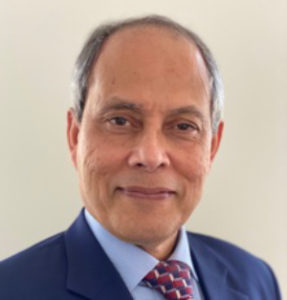 Professor Saifur Rahman is the founding director of the Advanced Research Institute at Virginia Tech, USA where he is the Joseph R. Loring professor of electrical and computer engineering. He also directs the Center for Energy and the Global Environment. He is a Life Fellow of the IEEE and an IEEE Millennium Medal winner. He was the president of the IEEE Power and Energy Society (PES) for 2018 and 2019. He was the founding editor-in-chief of the IEEE Electrification Magazine and the IEEE Transactions on Sustainable Energy. He has published over 150 journal papers and has made over five hundred conference and invited presentations. In 2006 he served on the IEEE Board of Directors as the vice president for publications. He is a distinguished lecturer for the IEEE Power & Energy Society and has lectured on renewable energy, energy efficiency, smart grid, energy internet, blockchain, IoT sensor integration, etc. in over 30 countries. He is the founder of BEM Controls, LLC, a Virginia (USA)-based software company providing building energy management solutions. He served as the chair of the US National Science Foundation Advisory Committee for International Science and Engineering. He has conducted several energy efficiency, blockchain and sensor integration projects for Duke Energy, Tokyo Electric Power Company, the US National Science Foundation, the US Department of Defense, the US Department of Energy and the State of Virginia. He has a PhD in electrical engineering from Virginia Tech.
Professor Saifur Rahman is the founding director of the Advanced Research Institute at Virginia Tech, USA where he is the Joseph R. Loring professor of electrical and computer engineering. He also directs the Center for Energy and the Global Environment. He is a Life Fellow of the IEEE and an IEEE Millennium Medal winner. He was the president of the IEEE Power and Energy Society (PES) for 2018 and 2019. He was the founding editor-in-chief of the IEEE Electrification Magazine and the IEEE Transactions on Sustainable Energy. He has published over 150 journal papers and has made over five hundred conference and invited presentations. In 2006 he served on the IEEE Board of Directors as the vice president for publications. He is a distinguished lecturer for the IEEE Power & Energy Society and has lectured on renewable energy, energy efficiency, smart grid, energy internet, blockchain, IoT sensor integration, etc. in over 30 countries. He is the founder of BEM Controls, LLC, a Virginia (USA)-based software company providing building energy management solutions. He served as the chair of the US National Science Foundation Advisory Committee for International Science and Engineering. He has conducted several energy efficiency, blockchain and sensor integration projects for Duke Energy, Tokyo Electric Power Company, the US National Science Foundation, the US Department of Defense, the US Department of Energy and the State of Virginia. He has a PhD in electrical engineering from Virginia Tech.
Sampathkumar Veeraraghavan, Chair of IEEE HAC
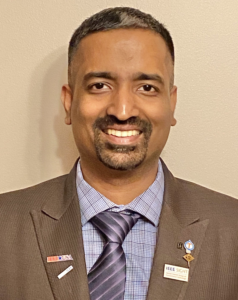
Sampathkumar Veeraraghavan is a globally renowned technologist best known for his technological innovations in addressing global humanitarian and sustainable development challenges. He is a seasoned technology and program/product management leader with over 16 years of experience in Top 500 Fortune companies. Throughout his career, he has led business critical strategic programs and successfully delivered cutting-edge technologies in areas of conversational Artificial Intelligence (AI), Natural Language Understanding, cloud computing, enterprise systems, infrastructure technologies, assistive and sustainable technologies. He has delivered 150+ invited talks in International forums, premier technology conferences and industry panels.
As the Global chair of 2021 IEEE Humanitarian Activities Committee (IEEE HAC), Sampath spearheads the global strategy and portfolio of sustainable development and humanitarian engineering programs to deliver impactful programs at grass root-level. He is credited with launching several novel global programs in humanitarian engineering which successfully inspired and engaged students and young professionals in sustainable development activities globally. Sampath was the Global Chair (2019-2020) of IEEE Special Interest Group on Humanitarian technologies (SIGHT), leading the program to record-breaking growth through high-impact, technology-driven sustainable programs benefiting members in 119+ countries. He is the founding chair for the IEEE SIGHT day (2020) and SIGHT week (2019), a global program that showcases the impactful IEEE technology-based humanitarian programs. He currently heads the IEEE Standard’s 2021 corporate sustainability working group. As an active IEEE and HKN member, he has spearheaded more than 20+ global committees.
Sampath served as an expert in the 2020 Broadband Commission working group on school connectivity co-chaired by UNESCO, UNICEF and ITU to drive “GIGA,” a Global School Connectivity Initiative. He is the founder and president of “The Brahmam,” a humanitarian program delivering next-generation social innovations to achieve sustainable development goals and benefit marginalized communities globally. He has launched large-scale transformational global initiatives that brought together academic institutions, industry and Government agencies to address pressing global sustainable development challenges faced in developing nations. He is accredited with numerous global awards and media mentions for his leadership excellence and technological innovations. He was recently accredited with the 2020 IEEE Theodore W. Hissey Outstanding Young Professional Award. He currently works as a senior technology and program management leader with Alexa Artificial Intelligence Group at Amazon, USA.
Samuel Chorlton, Chair of the Digital Twin Hub, Digital Built Britain, University of Cambridge
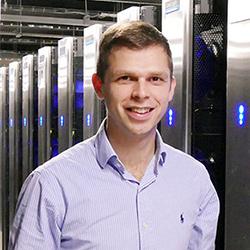 Samuel Chorlton is chair of the Digital Twin Hub, a part of the Centre for Digital Built Britain. Samuel is helping to provide guidance and oversight to support industry and government as they look to leverage and adopt digital twin techniques to later enable the development of the National Digital Twin. Samuel has previously led the creation of the Data & Analytics Facility for National Infrastructure at the Science and Technologies Facilities Council (STFC) Rutherford Appleton Laboratory a collaborative cloud initiative looking to support the development of new and emergent techniques within the infrastructure research domain. Samuel, is an experienced technical architect and data visualisation specialist with experience spanning the Defence and Cyber sectors. Samuel specialises in the design and development of platforms to support large scale and heterogenous data analysis.
Samuel Chorlton is chair of the Digital Twin Hub, a part of the Centre for Digital Built Britain. Samuel is helping to provide guidance and oversight to support industry and government as they look to leverage and adopt digital twin techniques to later enable the development of the National Digital Twin. Samuel has previously led the creation of the Data & Analytics Facility for National Infrastructure at the Science and Technologies Facilities Council (STFC) Rutherford Appleton Laboratory a collaborative cloud initiative looking to support the development of new and emergent techniques within the infrastructure research domain. Samuel, is an experienced technical architect and data visualisation specialist with experience spanning the Defence and Cyber sectors. Samuel specialises in the design and development of platforms to support large scale and heterogenous data analysis.
Sandeep Agrawal
 Sandeep Is working as a TEAM LEADER at C-DOT Bangalore. He joined C-DOT in 2008 after passing out from NIT Bhopal. He has 12+ years of experience on various telecom projects focusing on Strategic and Rural needs of India. He has worked on MAX-NG project to migrate legacy C-DOT switching technology to next generation (NGN) technology in BSNL network. He is responsible for overall Wi-Fi & Unlicensed band product development strategy in his present role in C-DOT.
Sandeep Is working as a TEAM LEADER at C-DOT Bangalore. He joined C-DOT in 2008 after passing out from NIT Bhopal. He has 12+ years of experience on various telecom projects focusing on Strategic and Rural needs of India. He has worked on MAX-NG project to migrate legacy C-DOT switching technology to next generation (NGN) technology in BSNL network. He is responsible for overall Wi-Fi & Unlicensed band product development strategy in his present role in C-DOT.
Currently, he is leading and architecting the PM-WANI (Prime Minister’s Wi-Fi Access Network Interface) program at C-DOT.
Sandeep is actively involved in the standardization of Wi-Fi & Rural Broadband. He is a member of TSDSI-IEEE-SA forum and Spectrum sub-committee of 5G HLF (High Level Forum).
He is Chair of IEEE SA P2872 to build standards for “Interoperable and Secure Public Wi-Fi Infrastructure and architecture” and “Rural Communication” Industry Connect Program of IEEE SA. He is also Vice Chair of IEEE SA P2061 Frugal 5G to build “Architecture for Low mobility Energy Efficient network for Affordable broadband Access”. He is contributing in the IEEE 802.11bc Enhanced broadcast group for Emergency Alert service standardisation. He is also Chair of IoT Work Group and co-lead of Wi-Fi sensing group in WBA (Wireless Broadband Alliance).
Sander Dolder Vice President of Initiatives – Smart and Sustainable Cities at NYCEDC
 Highly perceptive & even-keeled business development leader with 10 years of effective results transforming organizations and economies towards a low-carbon future by fostering innovation, growth, and systems change. Currently a Vice President at the New York City Economic Development Corporation where I design, build, & lead efforts to expand the NYC economy by catalyzing emerging sectors, developing innovation ecosystems, implementing sustainability strategies, and forging public-private partnerships: specialized in strategic foresight, innovation ecosystems, sustainability, impact investing, and organization design; sector experience in urbantech/smart cities, cleantech, telecom, media, emerging tech, chemical, and public sectors; and skilled in project management, due diligence, urban planning, public policy, and public-private partnerships.
Highly perceptive & even-keeled business development leader with 10 years of effective results transforming organizations and economies towards a low-carbon future by fostering innovation, growth, and systems change. Currently a Vice President at the New York City Economic Development Corporation where I design, build, & lead efforts to expand the NYC economy by catalyzing emerging sectors, developing innovation ecosystems, implementing sustainability strategies, and forging public-private partnerships: specialized in strategic foresight, innovation ecosystems, sustainability, impact investing, and organization design; sector experience in urbantech/smart cities, cleantech, telecom, media, emerging tech, chemical, and public sectors; and skilled in project management, due diligence, urban planning, public policy, and public-private partnerships.
Sandile Mbatha, Senior Manager for Research and Policy Advocacy Department in eThekwini Municipality, Durban (South Africa)
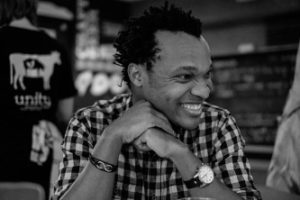 Dr Sandile Mbatha is the Senior Manager for Research and Policy Advocacy Department in eThekwini Municipality where he supports evidence-based policy development process through city-wide research and strategic planning. He is responsible for driving integrated city-level data processes for strategic decision-making. As part of this work, he is establishing strategic partnerships for building an inclusive data ecosystem necessary for supporting a data-driven city. He is also part of the team using a data-centred approach towards SDG institutionalization and indicator localization.
Dr Sandile Mbatha is the Senior Manager for Research and Policy Advocacy Department in eThekwini Municipality where he supports evidence-based policy development process through city-wide research and strategic planning. He is responsible for driving integrated city-level data processes for strategic decision-making. As part of this work, he is establishing strategic partnerships for building an inclusive data ecosystem necessary for supporting a data-driven city. He is also part of the team using a data-centred approach towards SDG institutionalization and indicator localization.
He is a former Director and founder of Ulwazi NS Research Consulting, an organisation focused on human-centric solutions to human settlements; informal land markets; urban planning; local economic development; water; food and energy issues in urban and peri-urban contexts. He holds a PhD in Architecture and Town Planning from the University of Stuttgart, with a focus on informal transactions in low income housing in South Africa. He has more than a decade of working with public and non-governmental sector through developing and implementing programmes for low income urban and peri-urban communities. He has also participated in various urban development programmes aimed at fostering development partnerships between the municipality and communities, particularly conducting research on urban renewal and driving stakeholder coordination and engagement. He also has vast experience as consultant across various sectors locally and internationally. He has held numerous fellowships which include the 2017/18 Academy for African Urban Diversity cohort, 2019 International Visitor Leadership Programme (IVLP); MGG Digital Academy Fellow 2021. He has also worked at the University of KwaZulu-Natal as a lecturer and has also served as an external examiner for postgraduate projects within the Built Environment and Development space.
Simay Akar, Vice-Chair of the IEEE Student Activities Committee – SAC and Chief Commercial Officer & Co-Founder at Innoses, Istanbul, Turkey
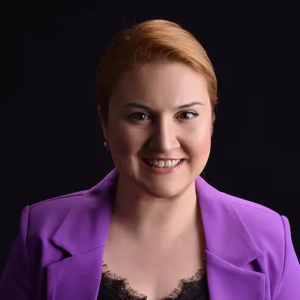 Simay Akar is an entrepreneur with reputable corporate industrial background and experience in the energy industry. She specialized in photovoltaic manufacturing, battery storage for electric vehicles and renewable energy technologies and the clean energy market development.
Simay Akar is an entrepreneur with reputable corporate industrial background and experience in the energy industry. She specialized in photovoltaic manufacturing, battery storage for electric vehicles and renewable energy technologies and the clean energy market development.
Her past roles include Sales & Marketing Director of EkoRE – Eko Renewable Energy and Marketing & Business Development Director of GoodWe Turkey, Head of Overseas Marketing at Talesun Solar. Akar has worked in China and Turkey and mostly focused on international commercial activities and has been employed by CSUN Eurasia, Schneider Electric, Arcelik (BEKO), and Lucida Solar. In addition to her professional acclimates, she is an IEEE Senior member, acknowledged volunteer since 2007. Simay is a graduate of Middle East Technical University, Ankara, Turkey and she participated Energy Innovation and Emerging Technologies Program at Stanford University.
Simay is Certified Soft Skills Trainer since 2008. Additionally, She is METU Alumni Association Energy Commission Member, Turkish Women in Renewables North America Liaison & Sailing Team Member, KYSKD(Female Sailors Sports Club Association) member. She is Licensed Sailor Athlete at the Turkish Sailing Federation and also Swimmer. She participates open seas swimming races, marathons, and sailing cups across the world.
She received several awards from IEEE and other corporations including:
· IEEE WIE Inspiring Member of The Year 2020 (Honorable Mention)
· IEEE Global Young Professionals Hall of the Fame Award 2018 (PES YP Team)
· IEEE MGA (Global) Young Professionals Achievement Award 2017
· IEEE MGA (Global) Achievement Award 2014 (as IEEE Day Team Lead)
· IEEE Day Leadership Award 2013
· CSUN Outstanding Staff Award 2014
Sri Chandrasekaran Director – Standards & Technology, IEEE India
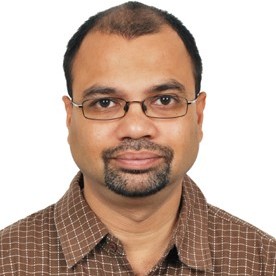 Sri has been associated with the IEEE-SA and the IEEE India office for the past 4+ years with focus on standards engagements in India and executing the programs on the Emerging Technology programs within the IEEE-SA. In this strategic role, Sri drives standards related initiatives & programs globally across technology sectors which include amongst others IoT, Smart Cities, Sensors, eHealth and VLSI domains, and also to engage Indian engineering community to global IEEE standards development efforts.
Sri has been associated with the IEEE-SA and the IEEE India office for the past 4+ years with focus on standards engagements in India and executing the programs on the Emerging Technology programs within the IEEE-SA. In this strategic role, Sri drives standards related initiatives & programs globally across technology sectors which include amongst others IoT, Smart Cities, Sensors, eHealth and VLSI domains, and also to engage Indian engineering community to global IEEE standards development efforts.
Prior to joining IEEE, Sri was associated with Freescale Semiconductor Inc. (formerly Motorola Inc.) for 18 years, managing a global R&D team focused on Electronic Design Automation.
Sri holds a Bachelor of Science degree in Physics from Madras University, India and a Post Graduation degree in Electrical Communication from Indian Institute of Science, Bangalore, India.
Suhono Harso Supangkat, Director, Smart Cities and Communities Innovation Center, Indonesia
 Prof Dr Suhono, was born in Yogya karta Indonesia, 3 December 1962. He received the B.S from Department of Electrical Eng. Bandung Institute of Technology (ITB) Indonesia in 1986 and holds Dr. of Engineering from Graduate School of Information System the University of Electro-Communication Tokyo Japan in 1998. From 1998-2002, he was secretary of Electrical Engineering Department Bandung Institute of Technology.
Prof Dr Suhono, was born in Yogya karta Indonesia, 3 December 1962. He received the B.S from Department of Electrical Eng. Bandung Institute of Technology (ITB) Indonesia in 1986 and holds Dr. of Engineering from Graduate School of Information System the University of Electro-Communication Tokyo Japan in 1998. From 1998-2002, he was secretary of Electrical Engineering Department Bandung Institute of Technology.
During 2002-2006, he was coordinator program on Graduate School of Information Technology in ITB. 2003-2009 Prof Suhono was assigned as a Chairman of Business Incubator Center at ITB. Since 2010, the center was extended become Institute for Innovation and Entrepreneurship Developmentand Suhono was a Chairman. Since 2000 he has been assisting some Government activities and industries, especially on Regulations an and IT Governance. From 2007 till 2009 he was appointed as Special Advisor to the Minister of Communication and IInformation Technology, Republic of Indonesia.
Tomi Ilijaš Founder and CEO of Arctur (Slovenia)
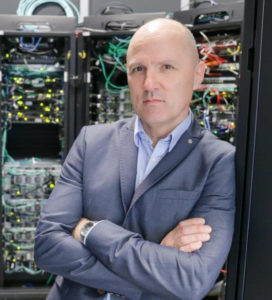 Tomi Ilijaš is founder and CEO of Arctur and he holds a MSc degree from Ljubljana University, Faculty of Electrical Engineering. Mr. Ilijaš is an entrepreneur focusing on Hi-Tech innovation, who has shared his knowledge and experience to many start-ups and spin-offs in the region. He participated in several EU funded R&D projects, inventing new business models in HPCaaS and successfully breaking the barriers in bringing HPC to manufacturing SMEs. Recently, his research focus is on transferring new technologies like HPDA, IoT and Blockchain from Industry 4.0 to tourism. He is also a member of EUROHPC Research & Innovation Advisory Group (RIAG) and member of PRACE Industrial Advisory Committee.
Tomi Ilijaš is founder and CEO of Arctur and he holds a MSc degree from Ljubljana University, Faculty of Electrical Engineering. Mr. Ilijaš is an entrepreneur focusing on Hi-Tech innovation, who has shared his knowledge and experience to many start-ups and spin-offs in the region. He participated in several EU funded R&D projects, inventing new business models in HPCaaS and successfully breaking the barriers in bringing HPC to manufacturing SMEs. Recently, his research focus is on transferring new technologies like HPDA, IoT and Blockchain from Industry 4.0 to tourism. He is also a member of EUROHPC Research & Innovation Advisory Group (RIAG) and member of PRACE Industrial Advisory Committee.
Vinod Bijlani Lead, AI and IoT Practice for HPE, Singapore
 Vinod Bijlani leads the AI and IoT Practice for HPE. He has contributed to the design and implementation of smart city projects and established intelligent public transportation and traffic ecosystems in India, Singapore, and the U.S. He has over 22 years of experience in creating solutions and is a distinguished inventor with 25 patents in AI and ML technologies. He actively shares his experiences by speaking at international forums, mentoring start-ups, and publishing articles. Vinod has been working with standards organizations, such as the IT Standards Committee Singapore (ITSC-SG) and TM Forum, building standards on AI Security and Video Analytics. He is also the lead mentor with IoT Tribe SG where helps nurture young, aspiring entrepreneurs. For more details on Vinod’s professional background, please refer to www.vinodbijlani.me
Vinod Bijlani leads the AI and IoT Practice for HPE. He has contributed to the design and implementation of smart city projects and established intelligent public transportation and traffic ecosystems in India, Singapore, and the U.S. He has over 22 years of experience in creating solutions and is a distinguished inventor with 25 patents in AI and ML technologies. He actively shares his experiences by speaking at international forums, mentoring start-ups, and publishing articles. Vinod has been working with standards organizations, such as the IT Standards Committee Singapore (ITSC-SG) and TM Forum, building standards on AI Security and Video Analytics. He is also the lead mentor with IoT Tribe SG where helps nurture young, aspiring entrepreneurs. For more details on Vinod’s professional background, please refer to www.vinodbijlani.me
Waleed Khalaf, CEO of Smart Way Consultancy (Bahrain)
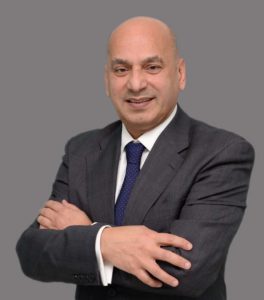 Waleed is currently the CEO of Smart Way Consultancy, Bahraini based multidisciplinary advisory firm that specializes in Smart Technology & Sustainability consultancy. He holds an MBA from University of Wales (1992) and a BSC in Telecommunications (South Shields College of Technology, UK 1987).
Waleed is currently the CEO of Smart Way Consultancy, Bahraini based multidisciplinary advisory firm that specializes in Smart Technology & Sustainability consultancy. He holds an MBA from University of Wales (1992) and a BSC in Telecommunications (South Shields College of Technology, UK 1987).
Waleed has over 40 years of experience in telecoms and technology. He started his career in Batelco at 1987 as a controller marine communications. He then progressed to various managerial positions in Batelco including Manager of Call Centers (1992-1995), Manager of Customer Services Department (2000-2004) and Manager of Public Relations (2004-2005). In 2005 he joined Mena Telecom as VP Sales and Marketing.
Waleed then moved on to establish T-Linx Technology Solutions & Telecoms Advisory in 2008. T-Linx is the only specialized firm of its kind in Bahrain offering bespoke turn key technology solutions to its clients in the residential, commercial and hospitality sectors covering automation, integrated systems and new digital media.
Being founder of the first Bahraini firm in this specialization, Waleed is usually referred to as the go to CEO for consultation and advice for this niche clientele on the best fit technology solutions for their individual and business requirements, thus delivering a world class solution with a focus on our markets’ local attributes.
In 2017 Waleed founded Smart Way Consulting to focus on providing consultancy solutions and advisory on smart technologies and sustainable solutions for smart cities. Waleed also chairs the steering committee for the Bahrain Smart Cities Summit annual event which is curated and organized by Smart Way Consulting since 2016 and serves as a platform for sharing expertise on smart and sustainable solutions for cities and a catalyst for creating new opportunities for smart and sustainable projects.
Currently Waleed is a Board member in Bahrain Internet Society. Waleed is also an independent advisor to the Information Government Authority (iGA) Bahrain International eGovernment Forum 2018 steering committee.




